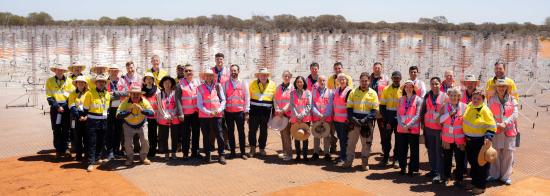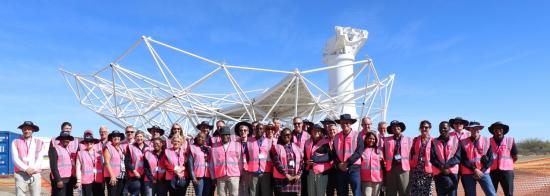Spain
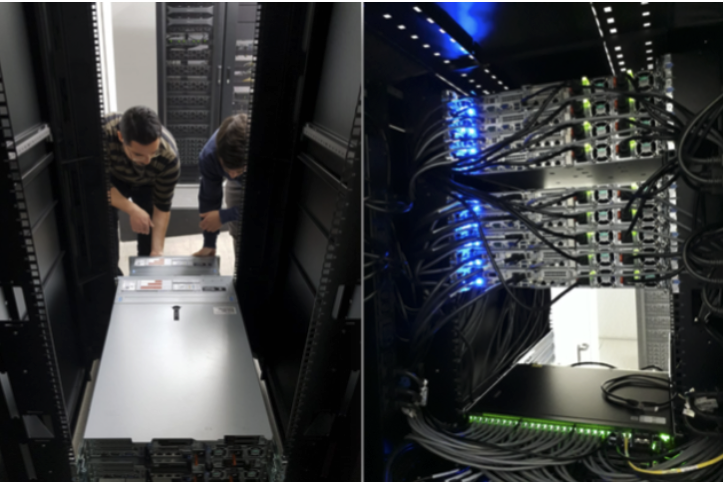
At a glance
- Spanish companies have been awarded four SKAO construction contracts (pre-allocated to Spain) and one for operations (competitive).
- Over 1200 astronomers are currently employed in Spain across 45 centres when including postdoctoral and predoctoral researchers. A total of 24 Spanish institutions participate in the SKA Science Working Groups (SWG), with 85 researchers from Spanish centres (4.6% of the total in SWG). The main SKA Science areas for the Spanish community are cosmology and large scale structures, galaxy evolution, magnetism, cradle of life and its chemistry, stellar astrophysics and synergies with other facilities (VLBI, high energy facilities,…).
- The Spanish Ministry of Science, Innovation and Universities is representing Spain in the SKAO Council and the coordination of the Spanish participation in the project is led by the Instituto de Astrofísica de Andalucía (IAA-CSIC), which belongs to CSIC – Spanish National Research Council.
- The 40-metre radio antenna at the Yebes Observatory is a member of the European VLBI Network (EVN), one of the SKA Pathfinders.
National involvement
Spain's participation in the SKA dates back to the 1990s and began to intensify in 2011. The IAA-CSIC coordinates the national scientific and technological participation in the SKA, currently funded by the Ministry of Science Innovation and Universities. This interest is demonstrated by the publication of the Spanish SKA White Book in 2015, the participation in the SKA Science book (10%), and currently by the increasing number of 84 Spanish-affiliated researchers involved in 13 of the 14 SKA SWGs and by the participation in the Spanish SKA Network (RedSKA), which brings together Spanish scientific and technical groups contributing to the SKA project.
The sustained effort led Spain to become the 9th member country to the SKA Observatory in April 2023. These activities prepared the Spanish industry for engaging with the construction of the SKA telescopes and Spanish community to contribute to 8 SKA design consortia and to the design and development of the SRCNet, being the Spanish SRC the first certified for the SRCNet 0.1.
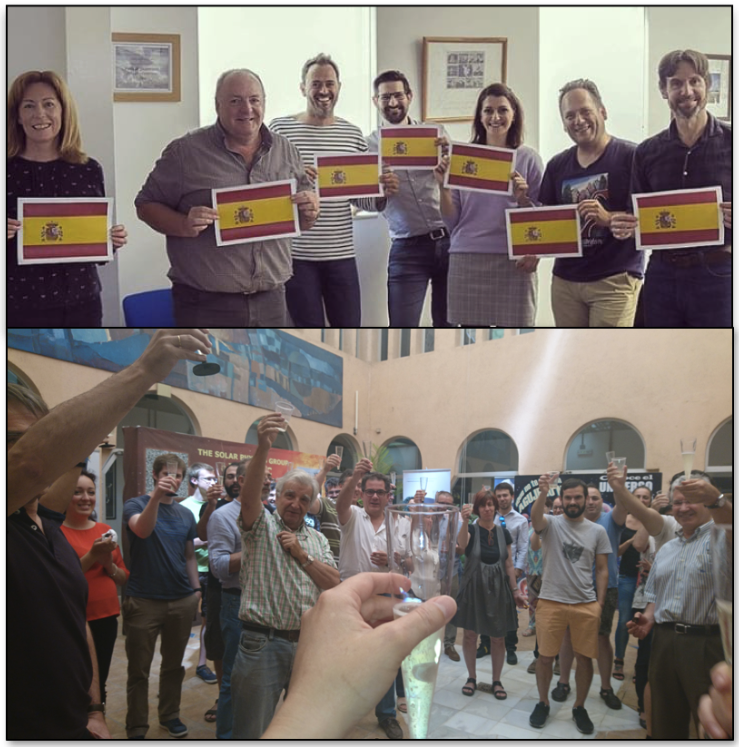
Industrial participation
Between 2023 and 2024, the Spanish industry has been awarded four contracts for the construction of the SKA telescopes:
● SKA-Mid and SKA-Low UTC Distribution System (Mar 2023). Granted to Safran Electronics & Defense (Granada, Spain).
● 80 units of the SPF Band 1 Feed Package Controller (Nov 2023). Granted to Acorde Tecnología (Cantabria, Spain).
● 44 units of the SKA-Mid dish subreflectors delivery (Jun 2024). Granted to Eosol (Navarra, Spain) and Compoxi (Girona, Spain).
In addition, a national company with a small distributor Maser in Australia was granted a contract in a competitive tender for SKA-Low site operations:
● Reverberation Chamber for SKA-Low Engineering Operations Centre (May 2023). Granted to EMITE (Murcia, Spain).
Science interests
The Spanish scientific community is part of the international teams that will carry out frontier science with the SKA telescopes. This was reflected with the publication of the Spanish SKA White Book in 2015, the result of a coordinated effort by 119 Spanish astronomers. The contributions are articulated in a total of 30 chapters, covering a wide range of SKA science drivers.
Furthermore, researchers from Spanish institutions participated in 14 of the 135 chapters of the international SKA science book (2015), leading three of them. They also participated in the call for expressions of interest in chapters in 2024 for the update of the international SKA Science Book (Advancing Astrophysics II), to which a total of 14 abstracts led by Spanish researchers have been submitted.
Over time, there have been 3 Spanish co-Chairs in SKA Science Working groups. Spain has organized 3 national ska-days, 2 industry meetings and a variety of seminars and sessions in major conferences.
Wider impact
The SKA project represents an unprecedented technological challenge. Spain played a key role in its design, with 12 research institutions and 12 companies participating in 8 of the 12 international design consortia between 2013 and 2019. This contribution led to major developments, such as the White Rabbit technology for signal distribution, technologies for Phased Array Feeds or advancements in open science platforms and data interoperability, reinforcing Spain’s position in the SKA ecosystem.
Collaboration with African countries and training activities are also being promoted, as, for example, co-organising the 1st SKAO Open Science School and the 2024 European Radio Interferometry School. Over the past few years, the SKA project has been highlighted in many outreach events in Spain. Notably, the project has been present at the European Researchers' Night every year since 2020, offering talks, information stands, and, more recently, a virtual reality stand. These activities are guided by the principles of equality, diversity and inclusion.
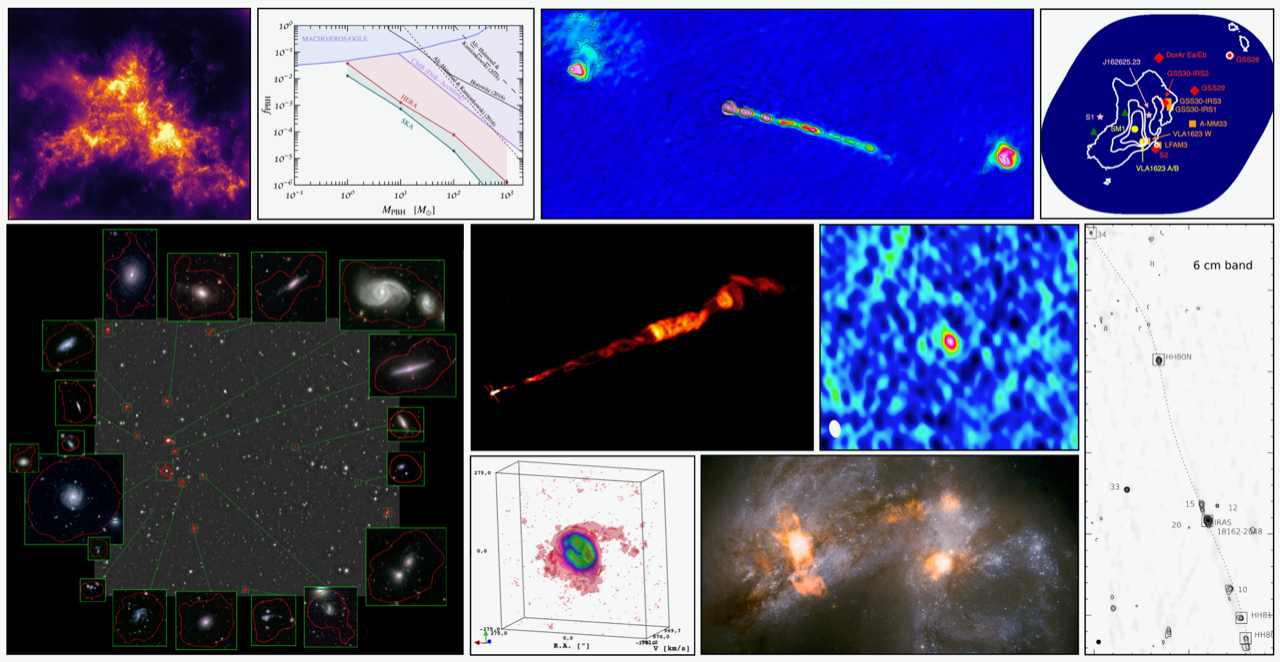
Contact
- Spanish SKA coordination: ska-es@iaa.es
- Industrial Liaison Officer: javier.echavarri@cdti.es





